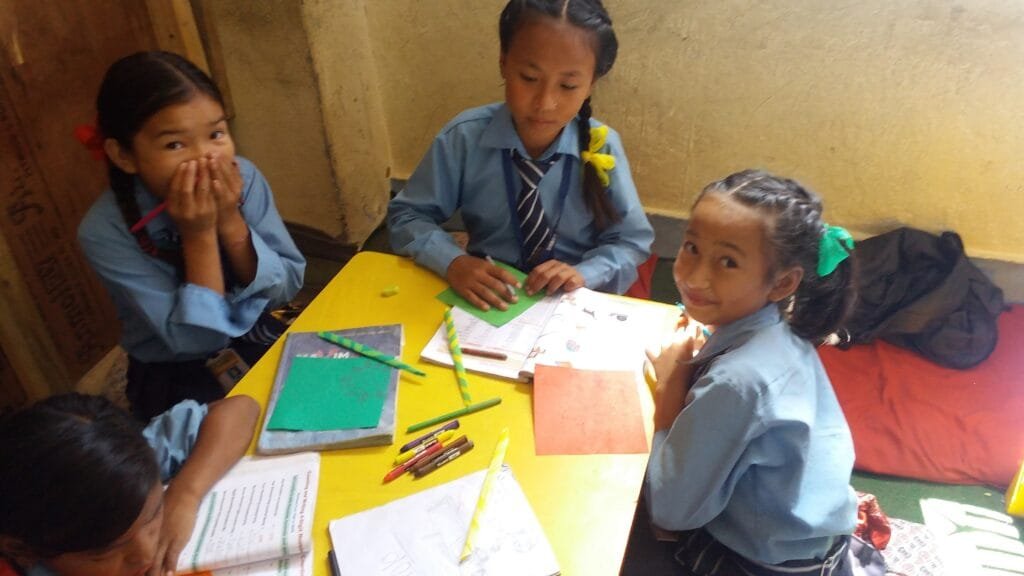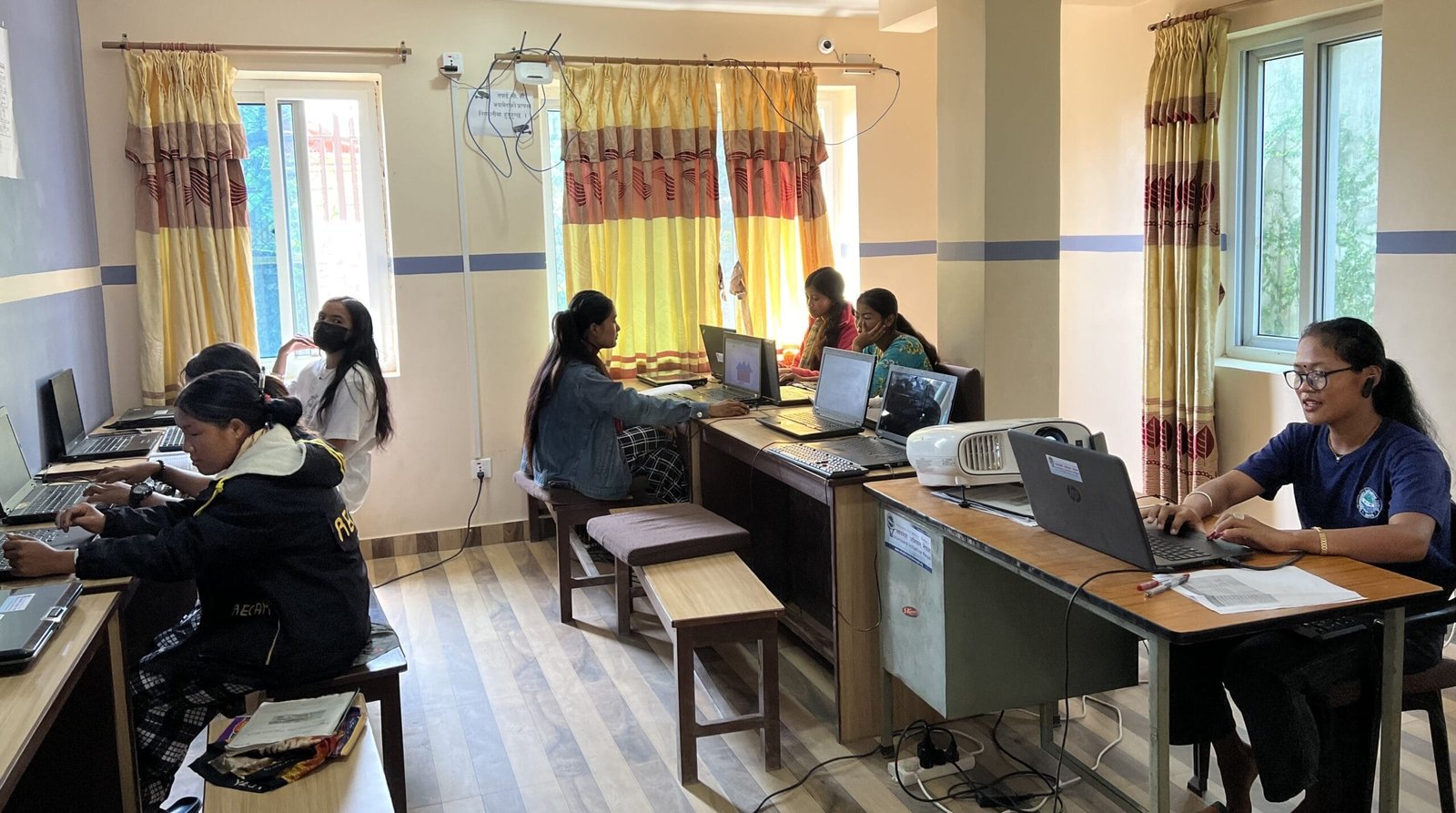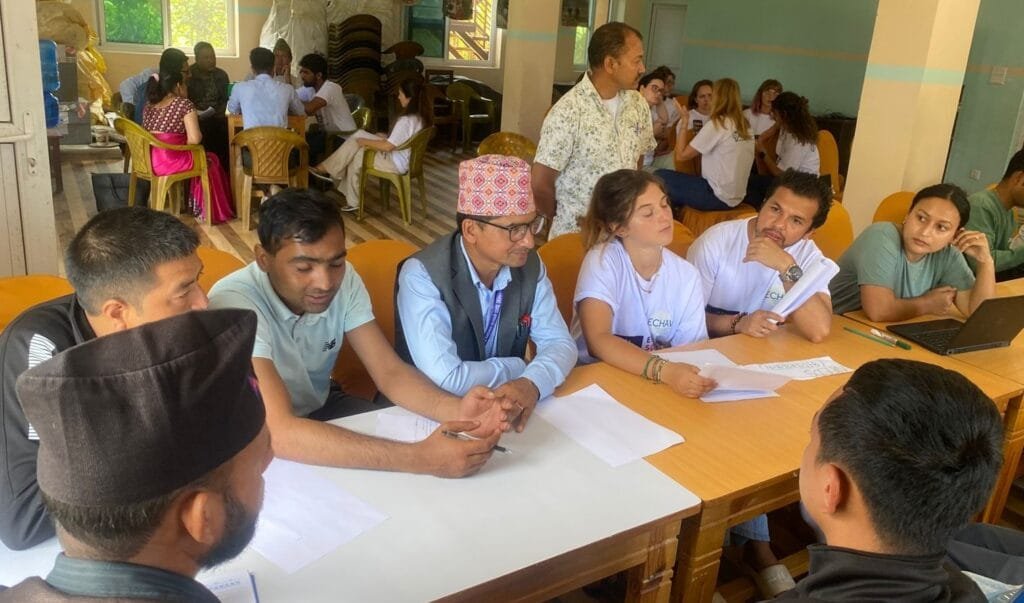Community Development Volunteer in Nepal – Empowering Local Communities for a Brighter Tomorrow
Are you eager to make a tangible difference in the lives of Nepalese communities while immersing yourself in rich culture and scenic beauty? Embark on a journey as a Community Development Volunteer in Nepal and discover how collaborative grassroots efforts can spark lasting social change. Through Nepal Community Development Programs and Volunteer Community Projects Nepal, you’ll become part of a collective force nurturing sustainable growth, uplifting underprivileged areas, and empowering families to build stronger futures. Keep reading to learn how you can join this transformative initiative.
Overview
- Project Name: Community Catalyst: Strengthening Villages and Empowering Lives in Nepal
- Tagline: “Building Hope, One Village at a Time”
This Community Development Volunteer in Nepal initiative focuses on enhancing local infrastructure, promoting education, advancing healthcare, and strengthening economic stability. By aligning volunteers with community-identified needs, our program addresses the core challenges facing rural populations. This approach ensures a meaningful impact, reinforcing Nepal Community Development Programs that emphasize collaborative planning, skill development, and sustainable project outcomes.
Project Description
Introduction
At the heart of the Community Catalyst project in Nepal are our volunteers, who play a crucial role in bridging resource gaps, cultivating leadership, and promoting long-term resilience across rural areas, all while respecting cultural traditions and local autonomy.
This project addresses the economic, social, and educational hurdles in remote Nepalese villages. Through cooperation between local partners and international volunteers, we strengthen essential services and empower individuals to make decisions that drive progress. Volunteer Community Projects Nepal participants help communities stand on their own feet, fostering independence rather than dependency.
Background
Nepal is home to over 29 million people, many of whom live in mountainous or hilly regions. Historical challenges, such as limited infrastructure, lack of educational facilities, and inadequate healthcare, have left remote communities vulnerable. According to the World Bank, around 17.4% of Nepal’s population lives below the national poverty line. Factors such as low literacy rates, restricted access to clean water, and insufficient economic opportunities also hinder growth. By connecting Community Service Volunteer Nepal participants with local leaders, we create tailor-made strategies that address real needs, ultimately fueling holistic community development.
Key Objectives
Infrastructure Enhancement
- Construct or renovate schools, health posts, and community centers.
- Improve water, sanitation, and hygiene facilities, reducing disease and water scarcity.
Social and Economic Empowerment
- Train locals in entrepreneurship and vocational skills, paving the way for stable livelihoods.
- Support women’s cooperatives and small enterprises through skill-building workshops.
Community Outreach and Education
- Strengthen literacy and numeracy programs in villages, providing children with a solid foundation.
- Run health awareness campaigns on nutrition, hygiene, and disease prevention, engaging entire families.
Together, these goals reflect the essence of Nepal Community Development Programs: bridging socio-economic gaps, building resilience, and nurturing a future where all community members thrive.
Why Volunteer for This Project: Community Catalyst in Nepal?
The Need
Poverty in rural Nepal is often more pronounced than in urban centers. According to UNICEF, disparities in access to essential services such as education and healthcare disproportionately affect women and children. To address these inequalities, we rely on volunteers passionate about Grassroots Development Volunteer Nepal efforts. Their hands-on work, whether constructing a school library or teaching English, helps remote communities evolve. By becoming a Rural Development Volunteer in Nepal, you help reduce illiteracy, improve maternal health, and stimulate local economies.
Global Relevance
The Community Catalyst project aligns with multiple United Nations Sustainable Development Goals (SDGs), including:
- SDG 1: No Poverty – Equipping communities with tools to lift themselves from economic hardships.
- SDG 4: Quality Education – Ensuring children in underprivileged areas receive literacy and learning support.
- SDG 8: Decent Work and Economic Growth – Fostering entrepreneurial skills among local youth, women, and farmers.
When you join as a Nepal Community Empowerment Volunteer, you seamlessly weave your commitment into a global movement, advancing broad-scale development objectives one village at a time.
Local Voices
“Our children had to walk two hours to reach the nearest school. Volunteers helped us build classrooms in our village. Now children learn safely close to home.”
— Kalpana, Resident of Ramechhap District
“I didn’t know how to read or write. Thanks to the evening literacy classes taught by volunteers, I can now help my children with their homework.”
— Dev, a Local shopkeeper in Nuwakot
Roles and Responsibilities
Roles and Responsibilities in Community Catalyst: Strengthening Villages and Empowering Lives in Nepal
Joining Volunteer Community Projects Nepal involves a dynamic range of tasks. Volunteers catalyze progress, ensuring knowledge transfer, tangible outcomes, and sustained empowerment in each community.
10 Core Tasks
Infrastructure Assistance
- Provide labor for constructing or renovating classrooms, toilets, water taps, and community halls.
- Help maintain safe building standards, guided by local masons and engineers.
Educational Support
- Teach basic literacy, numeracy, or IT skills to children and adults.
- Coordinate with local teachers to design creative lesson plans, bridging the learning gap.
Skills Training Workshops
- Conduct vocational sessions on tailoring, carpentry, or handicrafts to bolster income generation.
- Promote sustainable practices like organic farming and building on Sustainable Development Volunteer Nepal principles.
Healthcare Awareness
- Organize health camps focusing on maternal well-being, immunizations, and nutrition.
- Distribute informational materials on hygiene, water purification, and disease prevention.
Women’s Empowerment Programs
- Facilitate community meetings that address gender equality, leadership, and financial independence.
- Advocate for women-led cooperative groups to boost local economies.
Entrepreneurship and Income Generation
- Teach business planning and budgeting to aspiring entrepreneurs, helping them launch small ventures.
- Guide farmers and artisans on product development, connecting them with broader markets.
Clean Water and Sanitation Projects
- Assist in building or repairing water supply systems, ensuring year-round water access.
- Teach household-level water filtration methods and promote community cleanliness drives.
Community Outreach and Surveys
- Conduct door-to-door surveys to identify urgent community needs.
- Collaborate with local leaders to develop tailored solutions for community outreach programs in Nepal.
Environmental Conservation
- Plant saplings to curb deforestation or lead trash management campaigns to keep villages clean.
- Educate residents on eco-friendly practices, supporting Community Building Volunteer Nepal efforts for sustainable futures.
Monitoring and Evaluation
- Track project progress through data collection and community feedback.
- Share recommendations for future improvements, ensuring growth well beyond volunteer tenure.
Daily Activities
A typical volunteer day may look like this:
- 08:30 – 09:15: Shared breakfast featuring Nepali staples like dal bhat.
- 09:15 – 10:00: Walk to the project site, often passing by scenic hills or farmland.
- 10:00 – 13:00: Engage in classroom construction, skill workshops, or literacy sessions.
- 13:00 – 14:00: Lunch break with project team and community members.
- 14:00 – 16:00: Continue project work—health sessions, entrepreneurial training, or community outreach.
- 16:00 – 17:00: Return to accommodation. Debrief with coordinators or plan for the next day’s activities.
- 17:00 – Onwards: Free time for cultural immersion, relaxation, or journaling experiences.
Special Projects
Some volunteers opt to spearhead special, long-term initiatives. For example, a volunteer with IT expertise might set up a small computer lab, or a nurse might develop a comprehensive maternal care plan for expecting mothers. These specialized projects reflect volunteers’ personal interests and skill sets, enriching Local Community Support Nepal in diverse ways.
Skills and Requirements
Required Skills
- Motivation for Community Development: An eagerness to enhance village infrastructure, quality of life, and education.
- Adaptability: Willingness to adapt to rustic conditions, particularly in remote villages.
- Teamwork and Communication: Ability to collaborate effectively with community leaders, local staff, and fellow volunteers.
Eligibility
- Age Requirement: 18 or older. Younger participants may join with guardian supervision.
- Time Commitment: A minimum two-week stay is recommended for meaningful involvement. Longer durations maximize your impact.
- Language: Proficiency in English is useful; Nepali is beneficial but not mandatory.
Preferred Skills
- Background in Education or Social Work: Experience in teaching or community organizing can greatly support learning outcomes.
- Technical Knowledge: Construction, carpentry, or basic engineering skills are helpful for building projects.
- Cultural Sensitivity: Familiarity with local customs or a willingness to learn fosters deeper community trust.
Cultural Experience
Cultural Immersion
Your role as a Nepal Community Empowerment Volunteer transcends the worksite. Engage in local festivals like Dashain or Tihar, witness unique religious ceremonies, and taste Nepalese dishes. Many volunteers live in homestays, providing firsthand exposure to traditions and daily routines. You’ll share mealtimes, stories, and laughter with your host family, forging lifelong bonds.
Language Learning
Understanding the basics of the Nepali language can enrich your time as a Community Building Volunteer Nepal participant. Simple greetings—“Namaste” (hello) or “Dhanyabad” (thank you)—can foster instant rapport. Host families or local coordinators often offer language lessons, which deepen mutual respect and facilitate smoother collaboration during tasks like data collection or classroom support.
Logistics and Support
Accommodation
Volunteers typically stay in:
- Shared Volunteer Houses: Dorm-style rooms with common areas, allowing camaraderie among volunteers.
- Homestays: Staying with a local family, providing total cultural immersion and daily insights into village life.
Meals
- Daily Nepali Meals: Expect classics such as dal bhat, vegetable curries, and occasional meat dishes.
- Dietary Flexibility: Vegetarian or vegan options are widely accommodated if you inform the team beforehand.
Transportation
- Airport Pickup: Upon arrival in Kathmandu, a designated staff member greets volunteers at Tribhuvan International Airport.
- Daily Commutes: Depending on your placement’s remoteness, transport may vary from local buses to short treks. Coordinators arrange safe and reliable routes.
On-Site Support
Each project site has a local coordinator for day-to-day guidance. Their role includes:
- Assisting with cultural nuances.
- Addressing safety concerns.
- Providing real-time problem-solving, ensuring your volunteer journey remains rewarding and productive.
Health and Safety
- Vaccinations: Check that your vaccinations (e.g., Hepatitis A, Typhoid) are up-to-date.
- Travel Insurance: Mandatory coverage for medical emergencies is recommended for personal peace of mind.
- Emergency Protocols: Coordinators maintain protocols for immediate response to accidents or health issues. Local hospitals and clinics are accessible in most areas.
Program Fees and Inclusions
For detailed cost breakdowns, refer to our Program Fees page. Generally, fees cover:
- Accommodation and meals for the volunteer duration.
- Airport pickup and local orientation.
- In-country support staff and administrative needs.
- Contribution to the purchase of community project materials.
Your financial contribution upholds the sustainability of these Volunteer for Social Development Nepal efforts, ensuring continued support to remote villages long after your placement ends.
Impact and Outcomes
Volunteer Impact
Becoming a Community Development Volunteer in Nepal can transform your personal and professional life. You:
- Gain Leadership and Teamwork Skills: Coordinating with local leaders hones communication, planning, and conflict-resolution abilities.
- Develop Cultural Intelligence: Immersing in rural lifestyles broadens your worldview, making you more empathic and adaptable.
- Build a Global Network: Collaborate with fellow volunteers worldwide, forging international friendships and learning diverse viewpoints.
Community Impact
- Educational Advancement: Schools in remote locales report a boost in student engagement and learning outcomes after volunteer-led interventions.
- Economic Improvement: Women’s cooperatives and youth entrepreneurs see rising incomes following skill-building workshops.
- Social Unity: Joint construction projects or health campaigns strengthen community bonds, shaping an environment of collective accountability for development.
Success Stories and Testimonials
Volunteer Experiences
“Volunteering in rural Nepal showed me the power of small actions. I helped establish a library corner in a local school. Within weeks, students eagerly borrowed books—something they had never done before.”
— Clara, Australia
“I came here to teach English but learned just as much from the villagers. Their resilience and positivity, despite limited resources, was a lesson I’ll carry forever.”
— José, Spain
Local Impact Stories
- Empowered Women’s Group in Kavre: With volunteer-led training in sewing and budgeting, a handful of women formed a thriving craft business, doubling their household incomes in under six months.
- Revamped Community Hall in Dhading: Volunteers collaborated with local masons to renovate a once-dilapidated meeting hall. Now, it serves as a lively hub for festivals, skill workshops, and children’s activities, instilling pride in the village.
Application Process
Ready to start your journey as a Community Development Volunteer in Nepal? Follow these steps to join our Community Catalyst project:
- Complete the Online Application: Fill out the form at apply now page.
- Submit Your Resume: Attach your CV and two professional or academic references.
- Await Confirmation: Watch your email for acceptance and further instructions.
- Pay the Booking Fee: Secure your spot with a €150 program booking fee.
- Receive the Pre-Departure Pack: Obtain guidelines, language basics, and cultural tips.
- Final Payment: Pay the remaining program fee upon arrival in Nepal or via wire transfer.
FAQs
Below are frequently asked questions about our Nepal Community Development Programs:
- Is previous experience necessary to join as a Rural Development Volunteer in Nepal?
No. Enthusiasm and a willingness to learn are key. Training and local guidance are provided. - What type of work does a Grassroots Development Volunteer Nepal typically do?
Tasks range from teaching and renovating schools to leading health campaigns. You can also help with women’s empowerment initiatives or economic development projects. - Will I have support if I face cultural or language barriers while volunteering at Nepal Villages?
Yes. On-site coordinators and local staff assist with translation, cultural orientation, and day-to-day challenges. - Can my friend and I join Community Outreach Programs Nepal together?: Absolutely. Many volunteers travel in pairs or groups. However, placements depend on the project’s capacity and current needs.
- Are specific qualifications needed to become a Nepal Community Empowerment Volunteer?
We primarily require you to be 18 or older, healthy, and ready to adapt. Specialized skills (e.g., construction, healthcare) are a bonus but not a must. - Can I choose the region where I volunteer for Social Development Nepal? Preferences are considered, though final allocations depend on community priorities. We strive to match your skills with the most impactful placement.
- How safe is it to volunteer in Nepal villages?
Nepal welcomes foreigners, especially in communities that regularly host volunteers. We maintain robust safety protocols, and local coordinators are trained to handle emergencies.
Join Us Today to Make a Difference!
Now is your chance to become part of Volunteer Community Projects Nepal that change lives. Experience the hospitality of remote villages, contribute your skills to vital infrastructure or social programs, and take home unforgettable memories of personal growth and cultural immersion.
- Apply Now
- Contact us: [email protected] | WhatsApp: +977 9851070477
Become a Community Development Volunteer in Nepal and transform both your life and the lives of those you serve. Our doors—and hearts—are open to your support.
Gallery





Ready to inspire creativity and make a difference? Apply now to join the Community Development Volunteering Project in Nepal! Contact us to learn more and start your application today!
Volunteer Testimonials
-
Mark L., France
Volunteering at the monastery allowed me to immerse myself in a rich culture and gain insight into the daily lives […]
-
Anna C., Italy
Practicing meditation at the monastery helped me achieve a sense of peace I had never known before. The teachings and […]
-
James K., New Zealand
Teaching English at a Buddhist monastery in Nepal was the adventure of a lifetime. The monks were so welcoming, and […]



